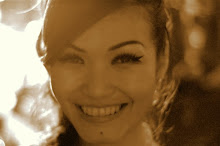International Cult Favourite
I'm reading [How I Became Stupid] by Martin Page (translated by Adriana Hunter, from French).
There are a few bits I like immediately already when I was in my first page, but the one I will share here is in chapter three, on why taking your life is the only way to freedom:
(page 41-42)
There is censure against suicide. Political, religious, social, even natural censure, because Mother Nature doesn't like us taking liberties with her, she wants to keep us in her clutches to the very end, she wants to decide for us. Who decides about our death? We've delegated that supreme freedom to illness, accidents, and crime. We call it fate. But that's wrong. This so-called fate is the subtle will of society, which gradually poisons us with its pollution, massacring us with wars and accidents...This is how society determines the dates of our deaths from what we eat, how dangerous our daily environment is, and from our work and living conditions. We don't choose to live, we don't choose what language we speak, what country or what age we live in, what tastes we have, we don't choose our lives. Our only freedom is death; death means finding freedom.
(page 59)
Men simplify the world with words and thoughts, and that's how they create their certainties; and having certainty is the most potent pleasure in this world, far more potent than money, sex, and power all combined. Renouncing true intelligence is the price we have to pay for having these certainties, and it's an expenditure that never gets noticed by the bank of our minds. In this instance, I actually prefer those who don't huddle behind the cloak of reason, and come out and admit that his faith is just own belief and not preemption on the truths of this world.
There's a Chinese proverb that goes something along these lines: a fish never knows when it's pissing. The same applies perfectly well to intellectuals. An intellectual is convinced of his own intelligence because he's using his brain. A mason used his hands, but he too has a brain that can say, "Hey! That wall's not straight and, anyway, you've forgotten to put the cement between the breeze blocks." There's a dialogue between his hands and his mind. The intellectual who works within his mind doesn't have that dialogue; his hands pipe out and say, "Come on, man, you've really goofed up! The earth is round." The intellectual doesn't have that distance, that discrepancy, so he thinks he has or can have an enlightened view on very subject.
Go figure.
Labels: Books




0 Comments:
Post a Comment
<< Home